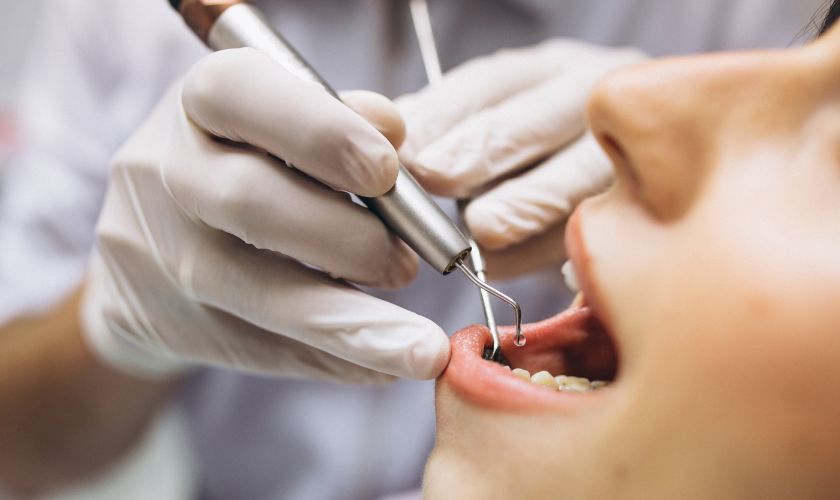Top Family, Cosmetic and Implant Center In 537 Amherst St, Nashua, NH 03063
Endodontic Treatment: Preserving Your Dental Health

When it comes to maintaining a healthy smile, proper dental care is paramount. One essential aspect of dental health is endodontic treatment. This procedure often referred to as a “root canal,” is a crucial intervention that can save a severely damaged or infected tooth. In this article, we will delve into the intricacies of endodontic treatment, addressing its importance, procedure, benefits, and common misconceptions.
Understanding Endodontic Treatment
What is Endodontic Treatment?
It’s a specialized dental procedure aimed at treating the innermost part of the tooth, known as the pulp. The pulp contains nerves, blood vessels, and connective tissue, and when it becomes inflamed or infected due to deep decay or trauma, endodontic treatment becomes necessary.
When is it Necessary?
This treatment is required when a tooth’s pulp becomes compromised, leading to severe pain, sensitivity, or the formation of an abscess. Rather than extracting the tooth, They can salvage it.
Common Symptoms Requiring Endodontic Treatment
Symptoms such as persistent toothache, sensitivity to hot or cold, swelling around the tooth, and pain while chewing can indicate the need for endodontic intervention.
The Endodontic Procedure
Diagnosis and Examination
The first step involves a thorough examination and X-rays to determine the extent of pulp damage. This helps the dentist plan the procedure effectively.
Anesthesia and Preparation
Local anesthesia is administered to ensure a painless experience. The tooth is isolated using a rubber dam, creating a sterile environment for the procedure.
Removal of Damaged Pulp
An access opening is made, and the infected or inflamed pulp is carefully removed from the tooth’s chamber.
Cleaning and Disinfection
The emptied chamber is meticulously cleaned, disinfected, and shaped to accommodate the filling material.
Filling and Sealing
The cleaned chamber is filled with a biocompatible material called gutta-percha, which is then sealed to prevent reinfection.
Restoration of the Tooth
A crown or filling is placed on the treated tooth to restore its strength and function.
Dispelling Myths And Misconceptions
Is Endodontic Treatment Painful?
Contrary to popular belief, modern techniques and anesthesia make this virtually painless.
Is Tooth Extraction a Better Option?
Preserving natural teeth is always preferable. They saves teeth from extraction and maintains oral function.
Longevity of Treated Teeth
With proper care, teeth treated with endodontic procedures can last a lifetime, just like any other teeth.
Benefits Of Endodontic Treatment
Preservation of Natural Teeth
Nothing can fully replace a natural tooth. It allows you to keep your natural teeth intact.
Pain Relief and Improved Oral Health
It alleviates the pain and discomfort caused by infected teeth, while also promoting overall oral health.
A Cost-Effective Solution
Compared to tooth extraction followed by tooth replacement options, It’s more cost-effective in the long run.
The Importance Of Timely Intervention
Preventing Further Complications
Delaying treatment can lead to the spread of infection to neighboring teeth and even into the bloodstream.
Avoiding the Spread of Infection
Endodontic infections can have serious health implications. Timely treatment prevents the risk of complications.
Contributing to Overall Well-being
Oral health is closely linked to general health. It’s contributes to your overall well-being.
Caring For Your Tooth After Endodontic Treatment
Post-Treatment Discomfort and Care
Mild discomfort is normal after the procedure and can be managed with over-the-counter pain relievers.
Maintaining Oral Hygiene
Practicing good oral hygiene and regular brushing and flossing are essential for the longevity of the treated tooth.
Regular Dental Follow-ups
Scheduled follow-up visits allow the dentist to monitor the tooth’s progress and ensure its health.
It’s often referred to as a root canal, is a vital dental procedure that preserves and restores teeth affected by severe decay or infection. By choosing endodontic treatment, you are choosing to retain your natural teeth, relieve pain, and ensure your overall oral health.

